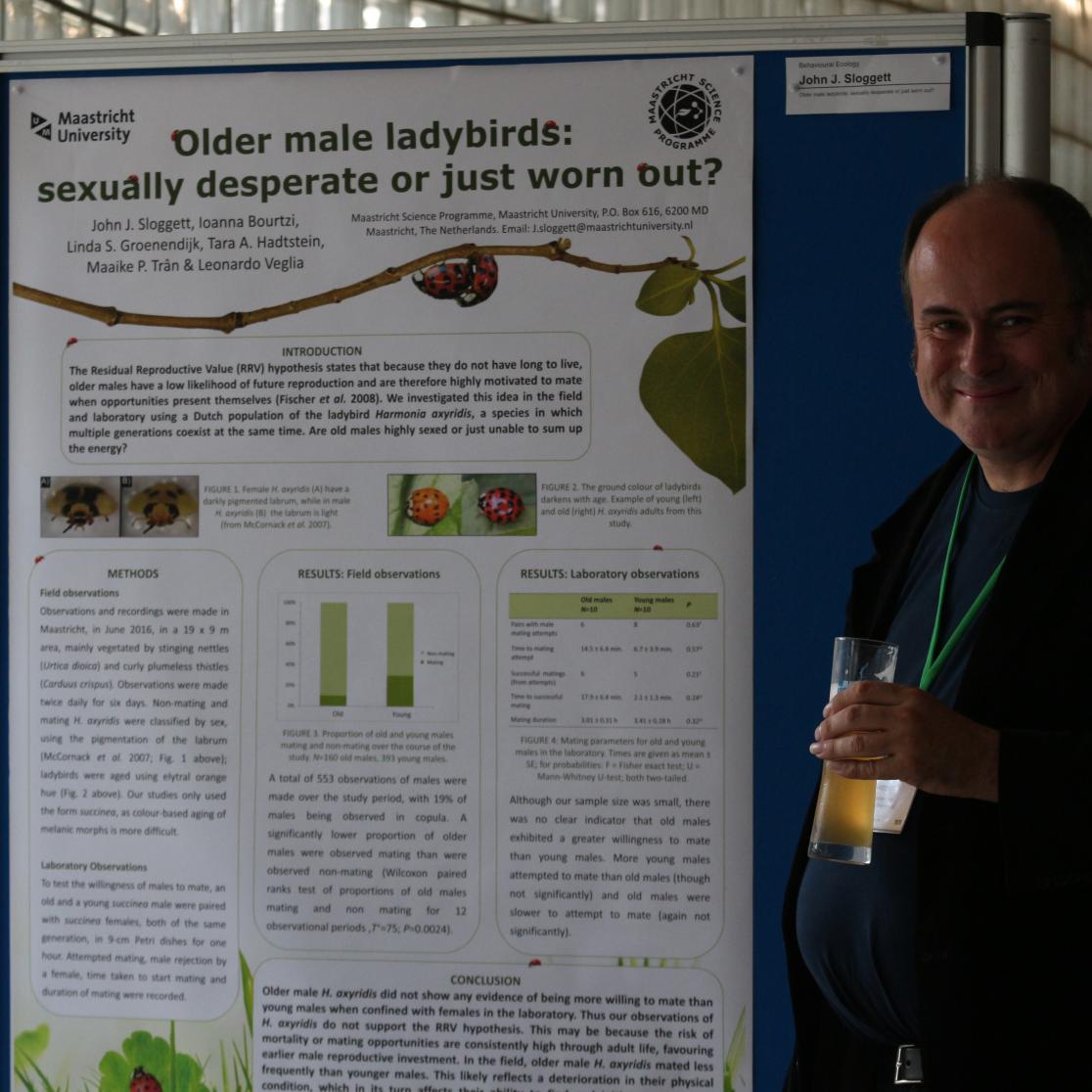Student zoology project data presented at international meeting.
At the end of August, John Sloggett, a biology lecturer at the MSP, presented a poster describing research done by MSP students at the 13th Aphidophaga (biology of aphid-eating insects) meeting in Freising, Germany. The poster described aspects of the mating biology of the invasive harlequin ladybird, Harmonia axyridis. “The students looked at mating behavior related to age. Unlike humans, some male animals become more highly sexed as they get old” said Dr. Sloggett.
A group of first year students looked at the age of ladybirds mating in the field. They found that male ladybirds’ interest declined with age. “This is important in the dynamics of diseases that are transmitted during mating” said Dr. Sloggett.
The project was carried out as one of the four 4-week research projects that students do in groups as a part of their studies at the MSP. This was the first project that these students had done. “I really enjoyed the opportunity to work outside in this project” said student Leonardo Veglia, “and it was very interesting to study one animal in such depth”.

John Sloggett at the conference with the poster of the students’ work.
Also read
-
Nava Tintarev takes a leading role in national computer science platforms
As of January 2026, Nava Tintarev, Professor of Explainable AI at Maastricht University’s Department of Advanced Computing Sciences (DACS), will join the boards of two of the Netherlands’ most prestigious computer science platforms.
-
Ron Heeren appointed fellow of the Netherlands Academy of Engineering
Professor Ron Heeren, distinguished university professor at Maastricht University (UM) and director of the Maastricht MultiModal Molecular Imaging Institute (M4i), was appointed as a fellow of the Netherlands Academy of Engineering (NAE) on Thursday 11 December.
-
UM builds open education and digital literacy into BKO/UTQ
Maastricht University is taking a practical step to support early-career teachers: open education and digital literacy will be built more firmly into the BKO/UTQ.